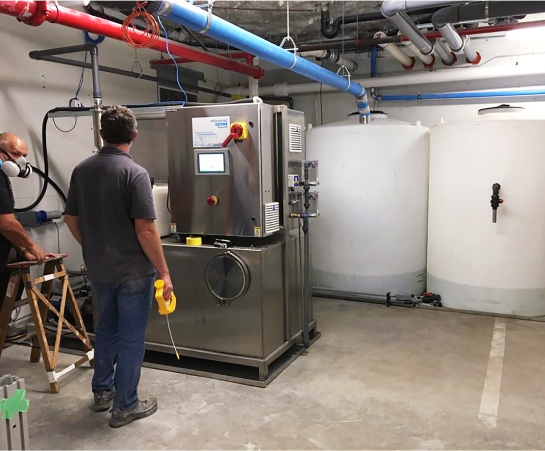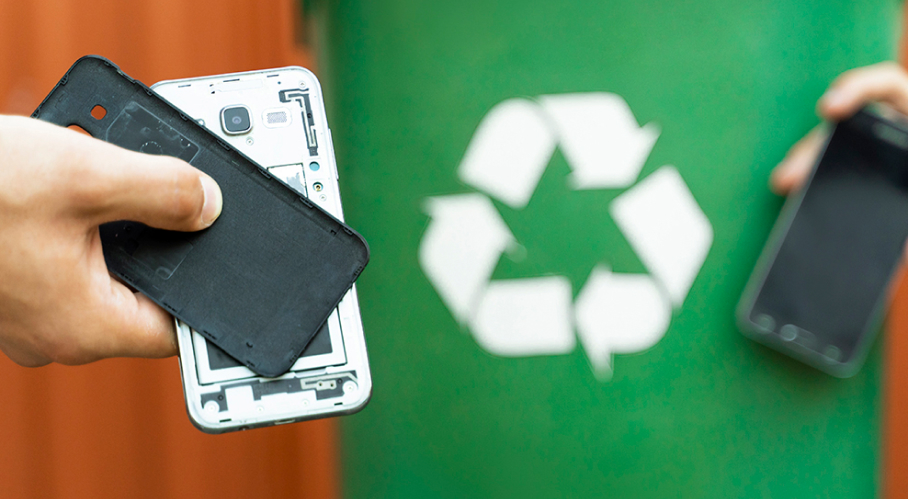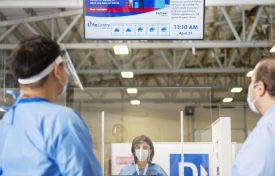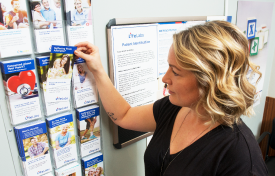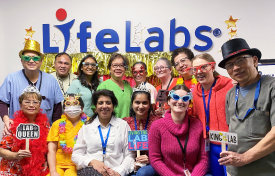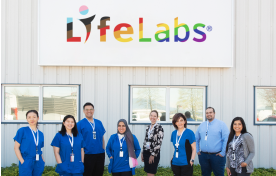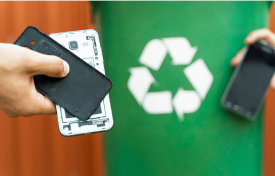At LifeLabs, respecting our environment is a natural extension of our commitment to caring and our sense of responsibility for the health and well-being of Canadians.
We need clean air, clean water and nutritious food to keep our bodies healthy. Outdoor recreation is critical to physical and mental well-being, and an important part of family life for many. Climate change has the potential to negatively impact many aspects of Canadians’ health. From our perspective, environmental sustainability is not a “nice to have”. It’s an integral part of our vision: empowering healthier Canadians.
In 2021, our efforts to reduce consumption, eliminate waste, and prevent pollution were recognized with an Environmental Sustainability Award at the 22nd Annual Burnaby Business Excellence Awards, a joint program of the City of Burnaby and the Burnaby Board of Trade. We’re proud to share that we also received Practice Greenhealth’s Environmental Excellence Award for the fourth year in a row, and once again LifeLabs was the only lab in North America to receive this award.
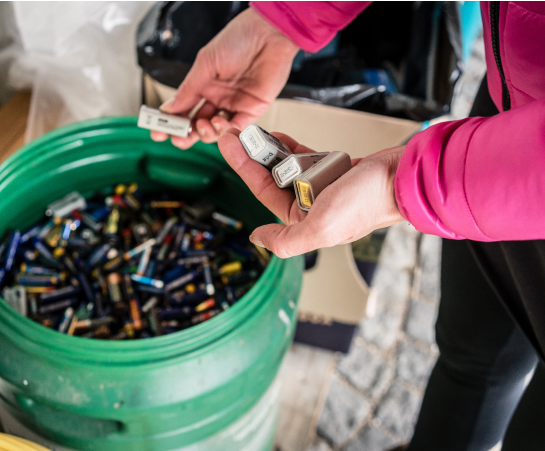
Holding ourselves accountable for environmental sustainability
The Global Reporting Initiative is an independent organization that provides a standard framework of indicators and benchmarks that business can use to assess their environmental, social and economic impact. See this year’s GRI report here.
LifeLabs has adopted the GRI framework, and for the past three years we’ve used it to help set objectives, measure progress, and report transparently on an annual basis. The following list outlines our environmental sustainability measures, all of which are tracked and measured according to GRI indicators.
- Batteries and Electronics Recycling Program: Employees are encouraged to bring in household batteries, cell phones and small electronic devices to be recycled and sent to our corporate e-waste partner.
- Landfill Waste Diversion: We have programs that divert all plastics, cardboard and organics as well as specialty programs such as shredding, Styrofoam and toner recycling. Our materials and logistics department reuse supply boxes to send orders to our doctors and other facilities to eliminate the purchase and waste of new boxes. They also reuse cooler bags, ice packs and styrofoam containers. We conduct an annual waste audit to keep us on track as we continue to reduce our environmental footprint.
- Reducing CO2 Emissions: We completed a greenhouse gas inventory and implemented a fleet of 121 hybrid vehicles to minimize the carbon footprint of our logistics teams and mobile lab services team. We optimize travel routes to minimize fuel consumption and emissions.
- Reducing Electricity Consumption: We have performed energy audits at our major labs and completed energy savings projects, including lighting and *HVAC upgrades, system automation improvements. We converted more than 2,200 fixtures to light-emitting diode (LED) technology in labs across Canada to increase energy efficiency.
- Sustainable Procurement: We have integrated sustainability requirements into our procurement and RFP processes.
- Resource Management: We are the first healthcare organization to use ozone technology to treat wastewater.
Partnering to protect the public water supply
LifeLabs conducts more than 120 million laboratory tests a year and almost every process in diagnostic testing relies on clean water to ensure high quality test results.
Conserving and returning clean, safe and usable water is an important part of our commitment to our communities and our environment. In 2021, we completed the installation of new water treatment technology at our labs in British Columbia. This unique technology was developed through a partnership between our lab operations, facilities and environmental sustainability teams and a team of external Advanced Ozone Integration experts. The new system breaks down and removes contaminants from laboratory wastewater so it can be returned to the public water system, rather than being contained and removed by a specialized waste management company.
